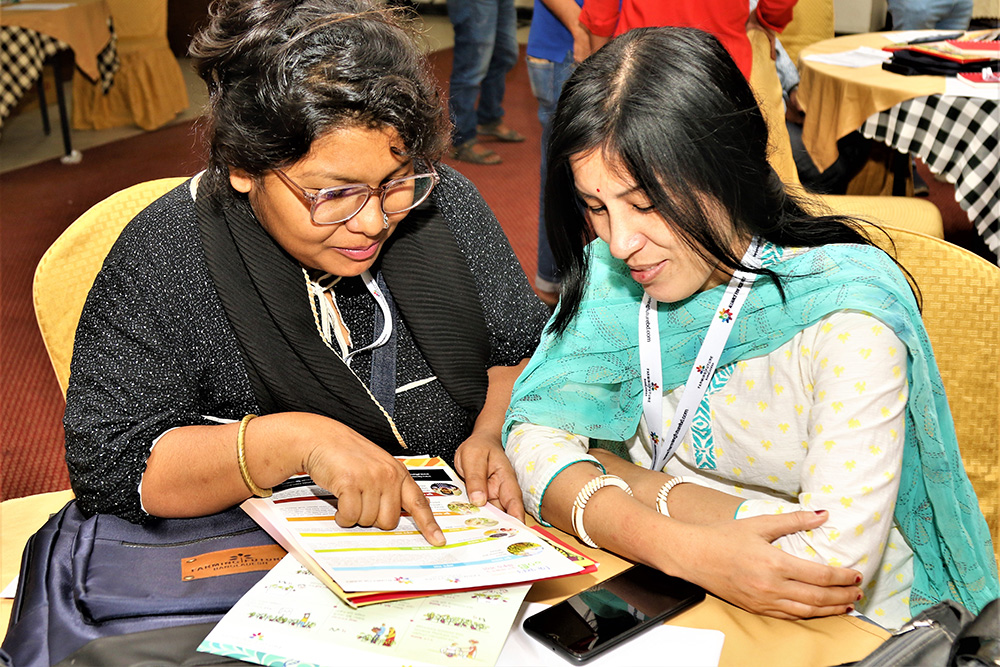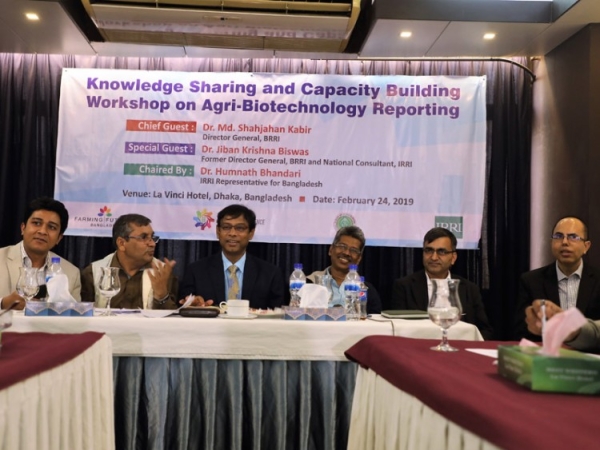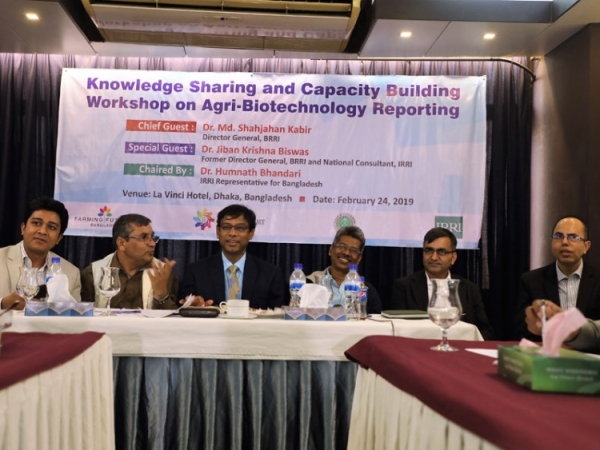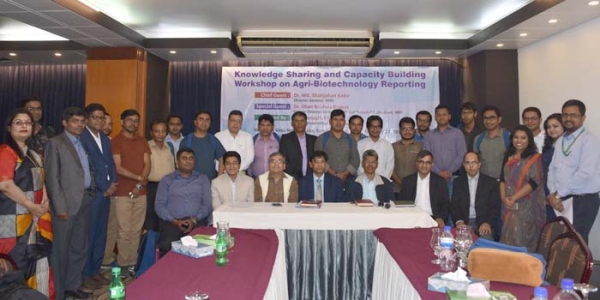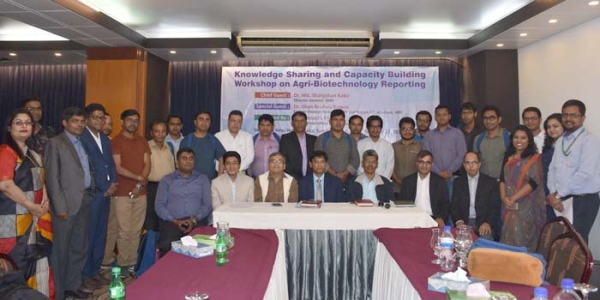Media Training
FFB has developed networking and partnership with existing journalist networks and organizations in Bangladesh for knowledge sharing and capacity building of national and regional level journalists on news reporting on genetic engineering, transgenic crop, and other applications of modern agribiotechnology.
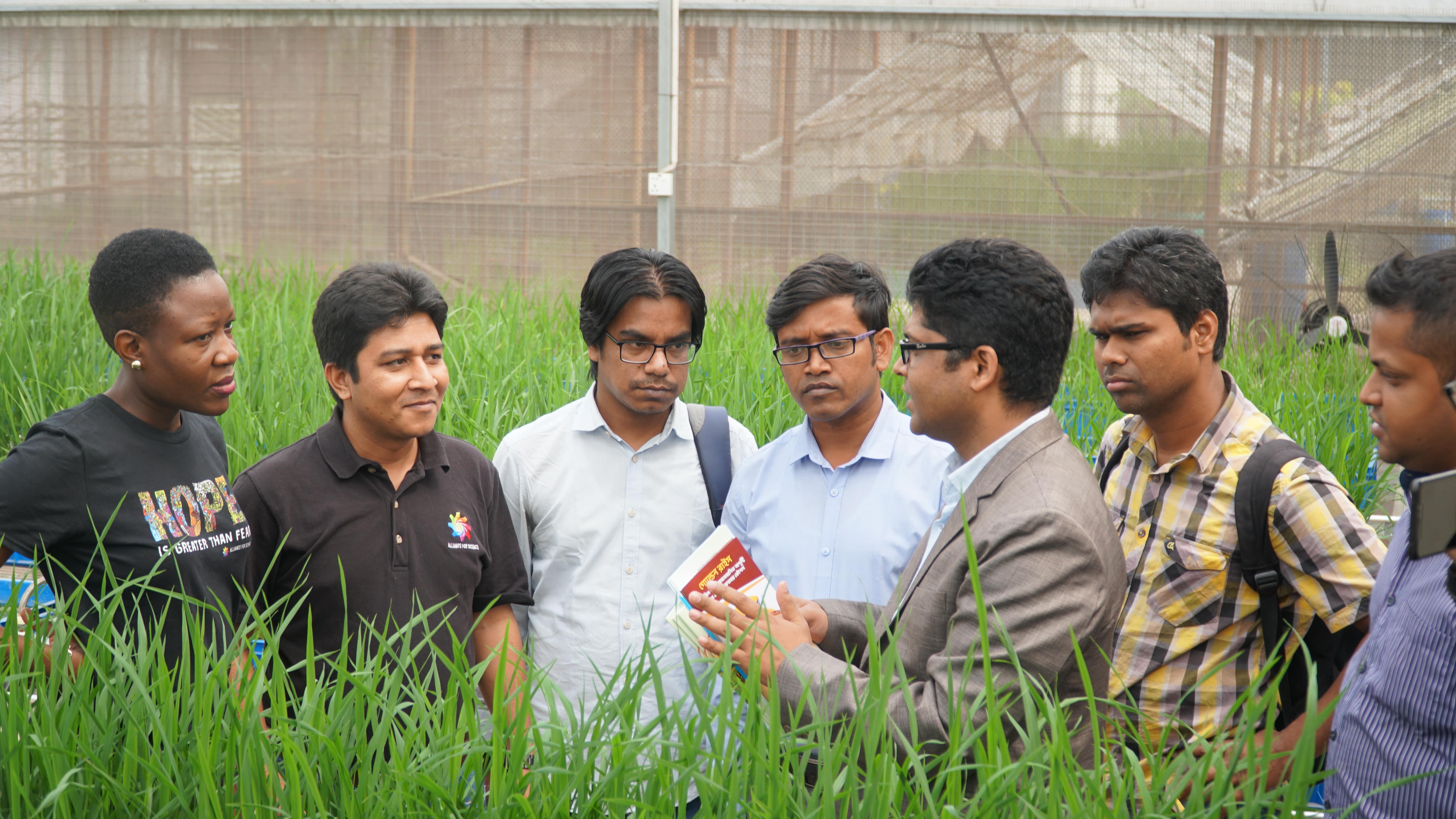
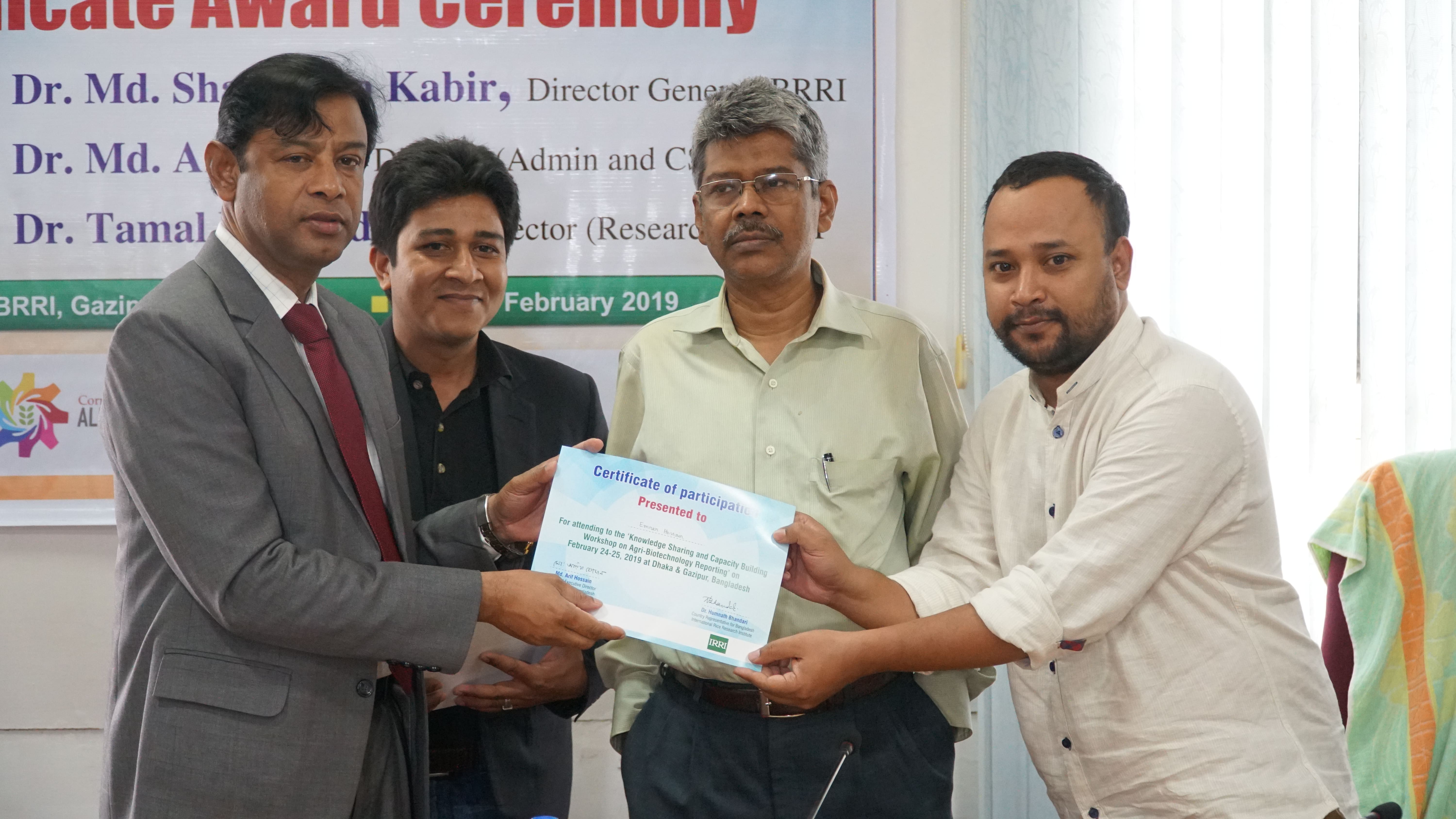
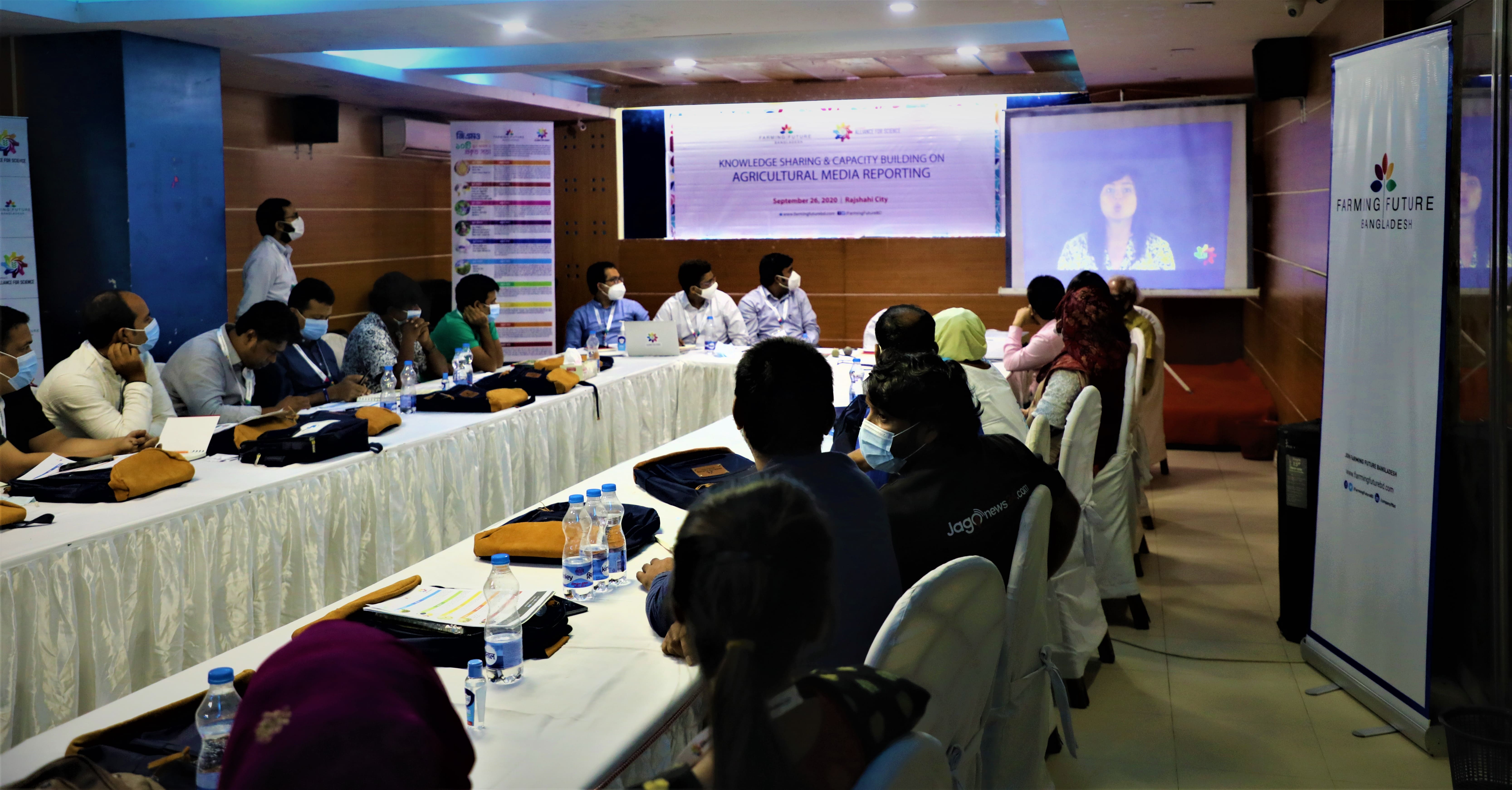
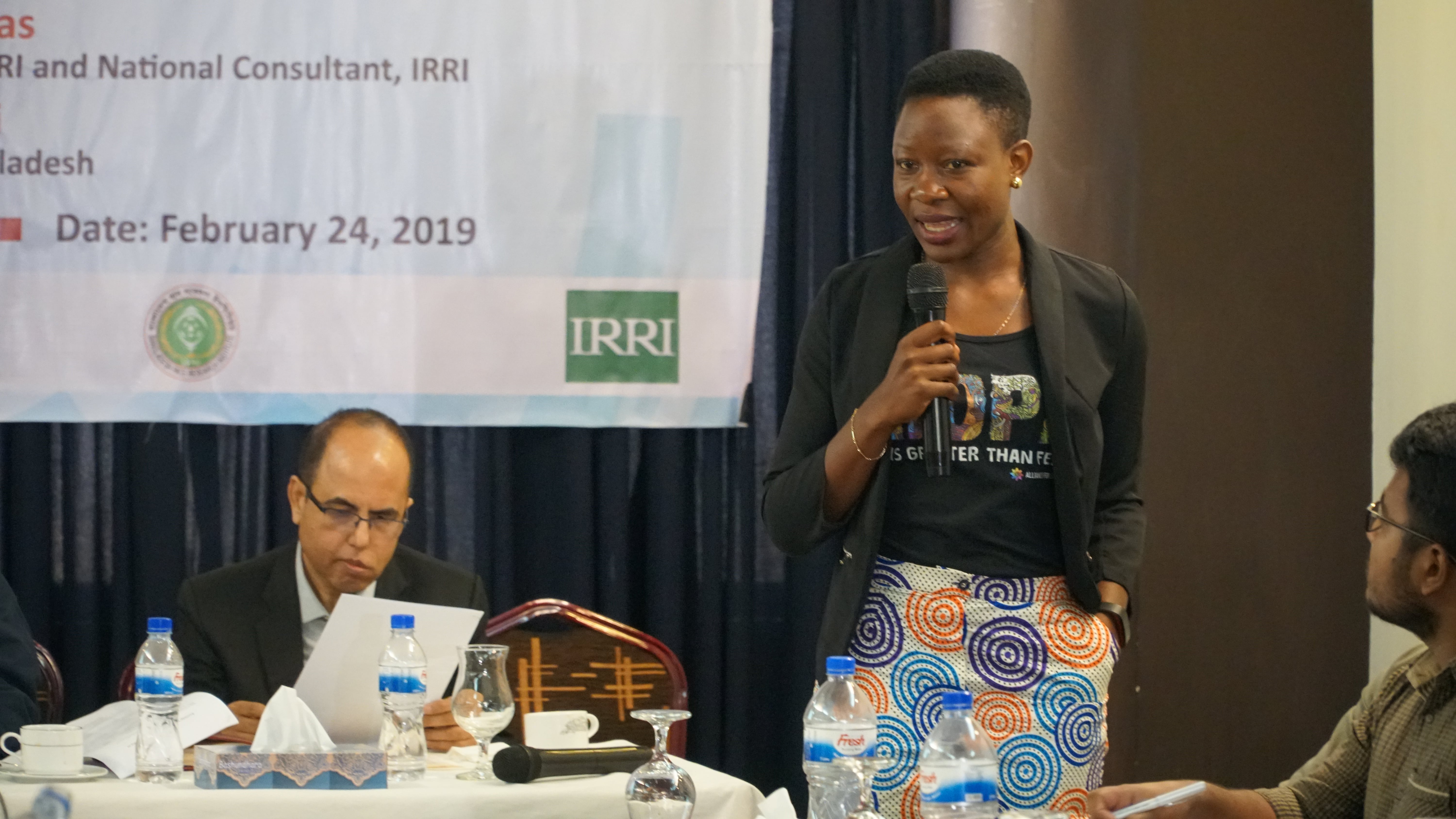
The media can play an effective and vital influencer to reach and change public misconceptions. News media articles influence public perception and media professionals can rephrase any scientific information and create a diversion in public understanding. Realizing the importance and gap of science communication skill development, FFB initiated science communication knowledge sharing and capacity-building activities for leading agricultural journalists.
Farming Future Bangladesh has been actively engaging journalists and sectoral experts for skill development and improved access to agricultural innovations. FFB has conducted regional media reporting and capacity-building programs and provided training to more than 150 agricultural journalists of Dhaka, Rajshahi, Rangpur, Sylhet, and Khulna divisions. The day-long training program has guided those professionals to nurture and empower themselves for effective evidence-based reporting.
Both national and regional level journalists have shown positive impactful evidence on science communication and crop biotechnology. Hundreds of news articles have been published across the country explaining the evidence-based information about agribiotech, modern innovations, and research.
FFB is the only organization that has the strategic advantage and expertise to effectively engage media professionals not being product developers or applicants for any regulatory approval, which gives the organization credibility among the media professionals. However, FFB will continue investing in media professionals` skill development on modern innovations and agribiotech issues.
FFB – IRRI Media Training
Aiming to develop journalists` capacity, a two-day workshop on the application of biotechnology in agriculture, began at a hotel in Dhaka yesterday. International Rice Research Institute (IRRI) and Farming Future Bangladesh (FFB) jointly organized the event with technical support from Bangladesh Rice Research Institute (BRRI). A total of 28 journalists from different print, electronic and online media outlets participated in the training, titled “Agri-Biotechnology Reporting”. The two-day long training ended with a field trip to the Biotech Lab and a field visit BRRI office in Gazipur. Media personnel interacted with speakers and shared their views on the status, prospects, and challenges of agricultural biotechnology.
In the end, participating journalists concurred that agricultural news needs to be data-driven, and correctly represent the science. They also highlighted the importance of the media staying updated with the fast-paced innovations in agriculture at national and international levels.
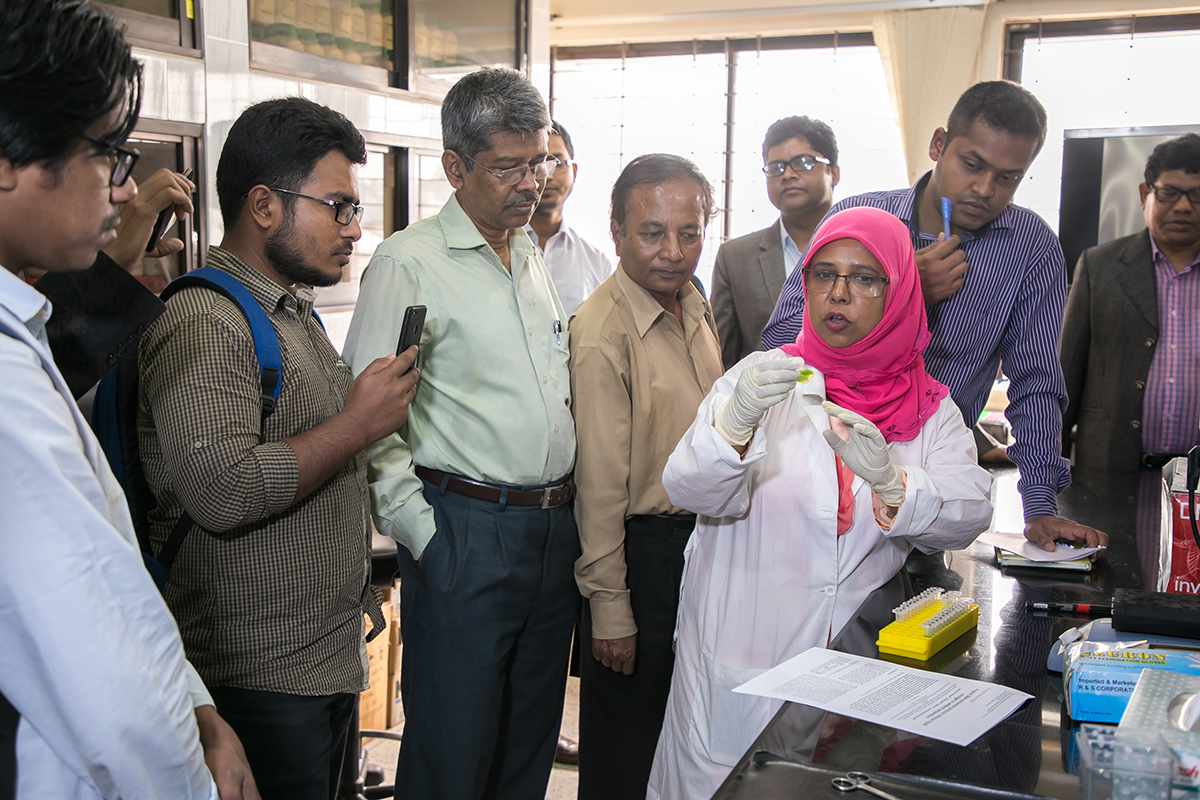
Rajshahi Media Training
In a bid to effectively disseminate information on agricultural innovation and build the capacity of media personnel to do pro-active and pre-emptive agriculture reporting in attaining SDGs and achieving food security, Farming Future Bangladesh (FFB) hosted a daylong training and knowledge sharing event on September 26, 2020, for 25 journalists from diverse fields of communication at greater Rajshahi region in Rajshahi. The program focused on the skills of effectively communicating scientific and technological innovations like agri-biotechnology and biosafety, which is characterized by both conceptual complexity and multi-disciplinarily, a multi-pronged approach.
When the mass people will get evidence-based results of agricultural innovation, they will understand the integrity of the development and implementation of modern technologies like agri-biotech and crops. Media and communication professionals can be a bridge between cutting-edge agricultural events and the people.
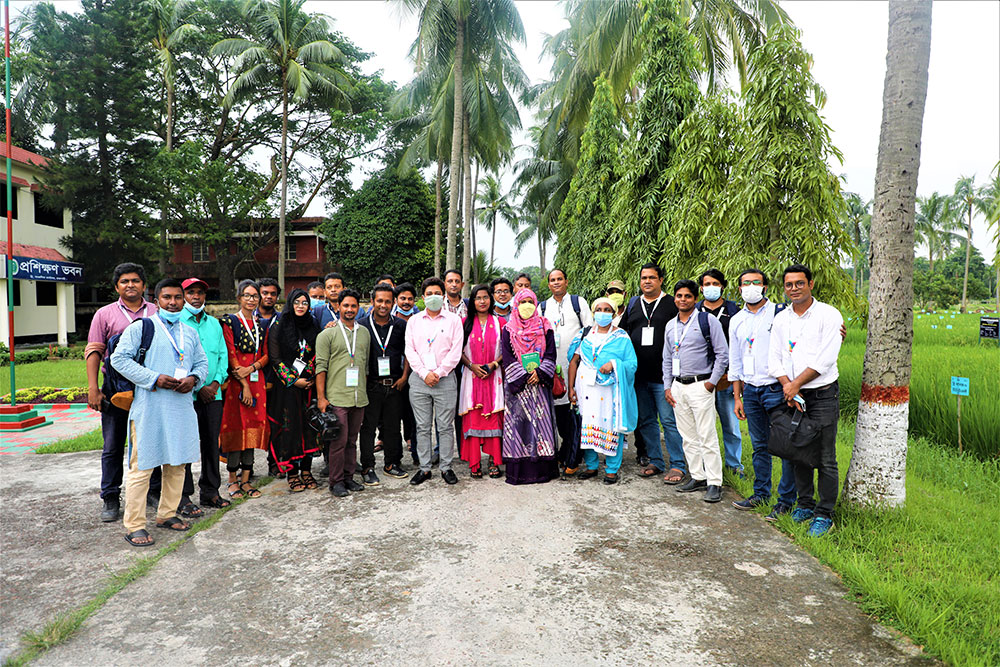
Khulna Media Training
With the participation of 25 journalists from the Khulna division, Farming Future Bangladesh (FFB) organized a program, titled "Knowledge Sharing & Capacity building on Agricultural Media Reporting" which focused on effective reporting on tech-smart agricultural innovations. The capacity-building session provided an extended view of communication practices in agriculture reporting. Agri-biotechnology, food safety, genome editing, science-based innovations, and other aspects of agronomy were discussed by renowned journalists, specialists, scientists, and academicians.
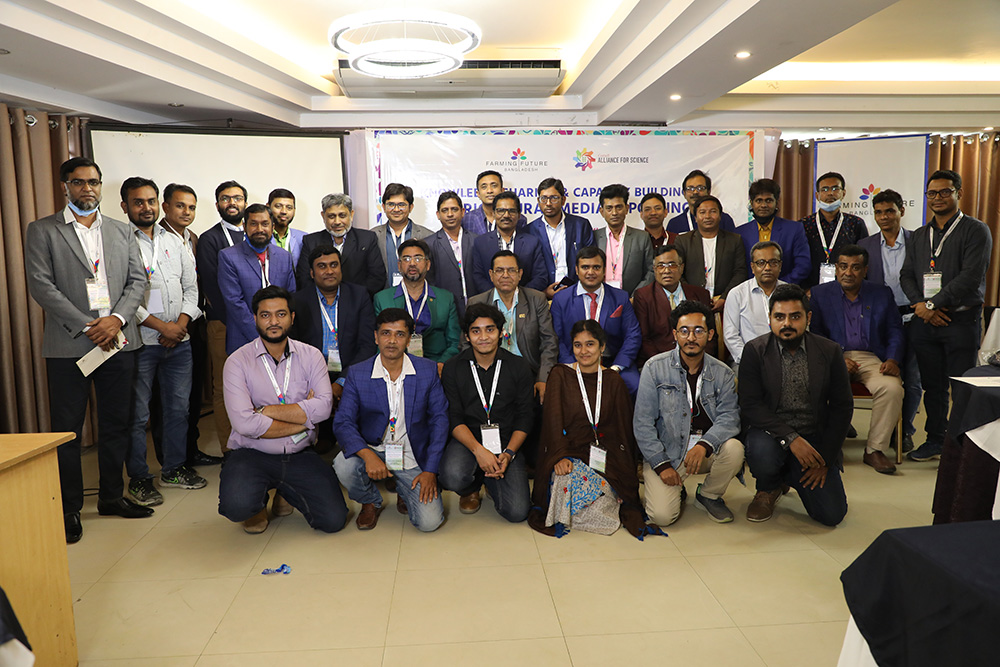
Rangpur Media Training
More than 25 journalists from print and electronic media from Rangpur Division participated in the two days virtual program titled “Knowledge Sharing & Capacity building on Agricultural Media Reporting” held on January 25 – 26, 2022 for agricultural journalists of Rangpur Division organized by Farming Future Bangladesh (FFB). The program was aimed to enhance skills in evidence-based media reporting for a better understanding of modern agricultural innovations including modernization and commercialization of agriculture, innovation, genetic engineering, gene editing, climate change, nutrition, and food security issues.
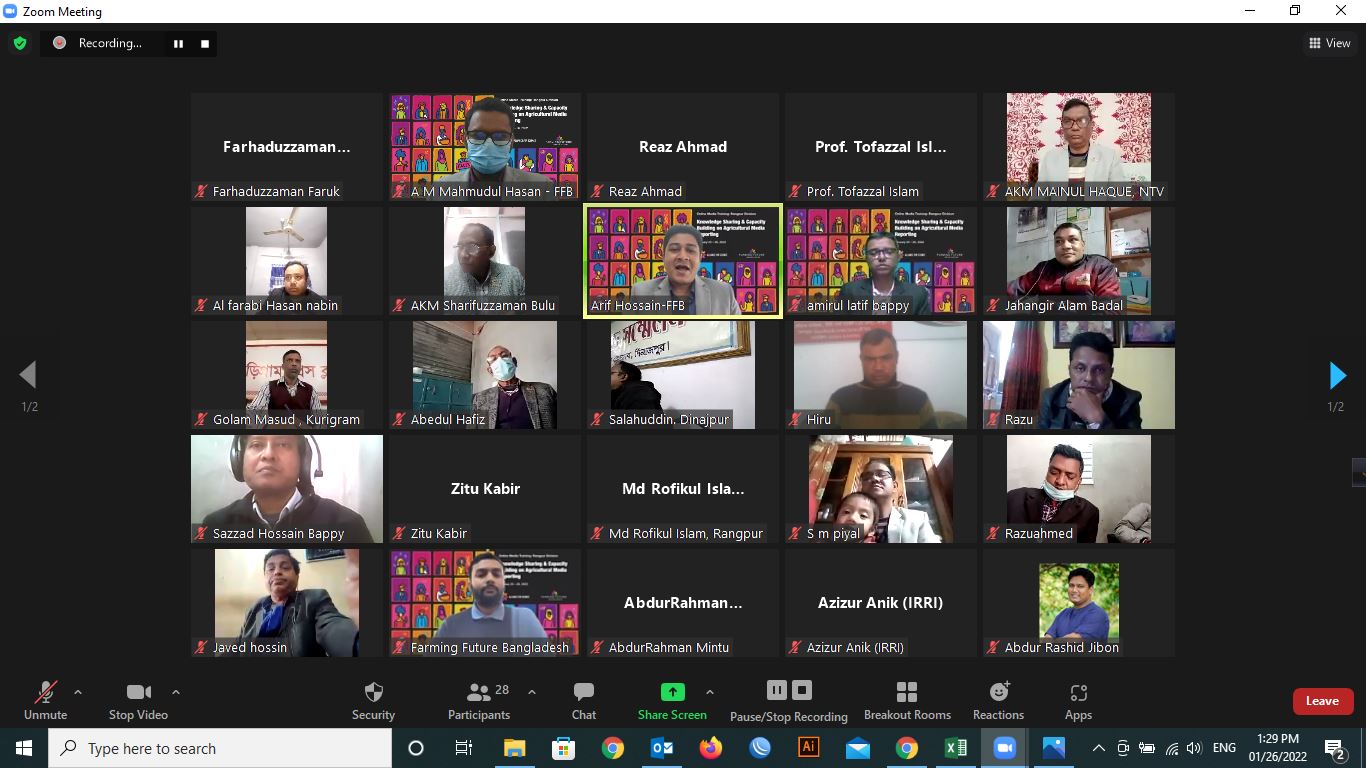
Rangpur Media Training
Scientists, media professionals, and agricultural journalists highlighted evidence-based media reporting in a knowledge-sharing program titled “Knowledge Sharing & Capacity building on Agricultural Media Reporting” held on April 19, 2022, at Nirvana Inn Hotel, Sylhet. The event, organized for agricultural journalists of Sylhet Division, was aimed to enhance skills in evidence-based reporting for a better understanding of modern agricultural innovations including modernization and commercialization of agriculture, genetic engineering, climate change, nutrition, and food security issues.
More than 30 journalists from 27 print and electronic media from Sylhet Division participated in the program organized by Farming Future Bangladesh (FFB). Media personnel interacted with speakers and shared their views on the status, prospects, and challenges of agricultural biotechnology.
